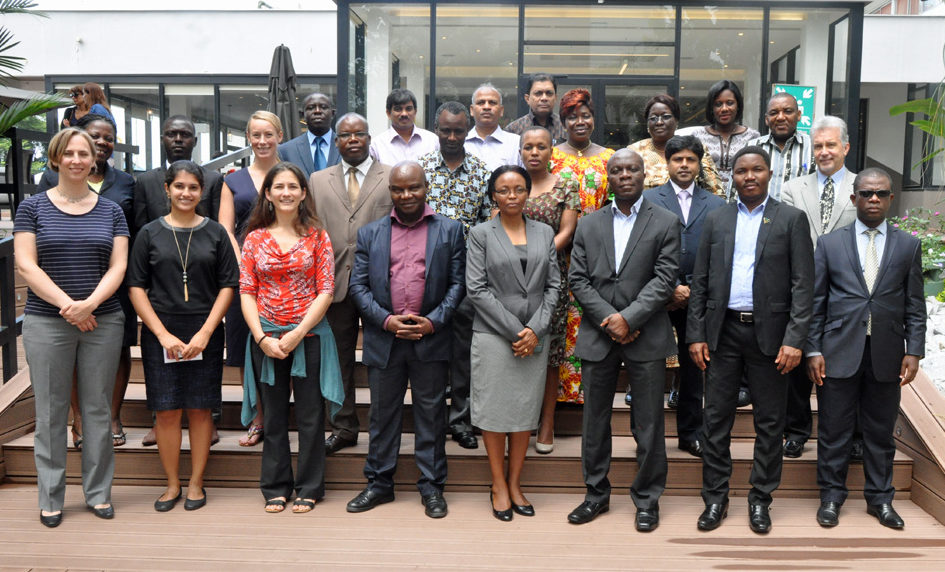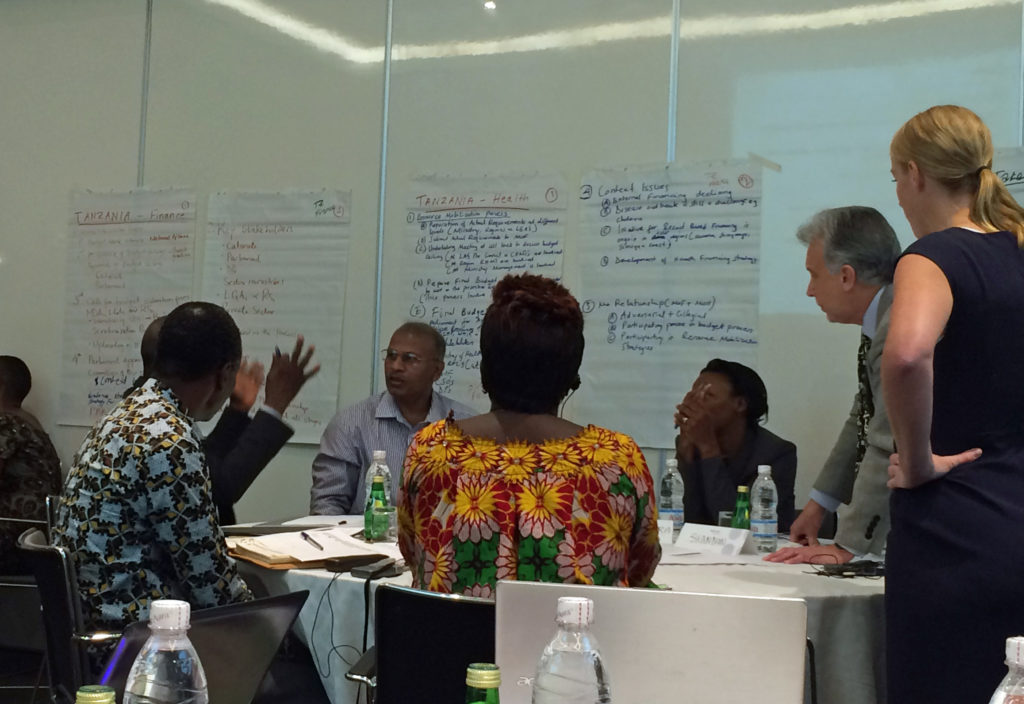Effective, Efficient, Accountable: Ministries Discuss Domestic Resource Mobilization
As domestic resources in many low- and middle-income countries grow, there is more money to dedicate to public programs, including health. External support to many countries is projected to decline, but with the right tools and advocacy, the health sector can get its fair share and benefit from increased national resources.
 Recently, the Health Finance and Governance (HFG) Project organized a multi-country workshop to support policymakers from public health and finance agencies in developing concrete action plans for mobilizing domestic resources for health. Twenty-five health and finance experts from Bangladesh, Côte d’Ivoire, Ghana, Peru, Tanzania, and the United States, convened at the Domestic Resource Mobilization (DRM) for Health “Slice of the Pie” Workshop in Abidjan, Côte d’Ivoire from September 1-2, 2016.
Recently, the Health Finance and Governance (HFG) Project organized a multi-country workshop to support policymakers from public health and finance agencies in developing concrete action plans for mobilizing domestic resources for health. Twenty-five health and finance experts from Bangladesh, Côte d’Ivoire, Ghana, Peru, Tanzania, and the United States, convened at the Domestic Resource Mobilization (DRM) for Health “Slice of the Pie” Workshop in Abidjan, Côte d’Ivoire from September 1-2, 2016.
The keynote speaker, Ms. Midori de Habich—Peru’s former Minister of Health—spoke about her experience working across ministries, sharing factors for success and offering advice for both health and finance personnel.
At the workshop, participants identified the key differences between Ministries of Health (MOH) and Ministries of Finance (MOF) that impede the functioning of both ministries and weaken the relationship between the two. MOH oversee allocation decisions, aligning spending with priorities and operating efficiently, but they are dependent upon MOF for overall funding. Working together, the MOH and MOF can ensure that priorities for both organizations are met while ensuring that the health sector gets its fair “slice of the pie.”
The institutions also lack common systems and have few opportunities for dialogue outside of the high-level annual budget negotiations. Participants agreed that closing the gaps was important. Workshop facilitators presented several tools intended to help these agencies overcome these communication and coordination barriers. Tools discussed included HFG’s Toolkit for Ministries of Health to Work More Effectively With Ministries of Finance—a collection of four tools designed to help bridge the gap between these two institutions. Participants practiced using the tools and then worked in small groups to develop action plans for improving allocation and use of resources for health.
 Using peer learning approaches to promote knowledge exchange and commitment to follow-up action, the workshop assisted high-level country teams in improving joint functioning and developing DRM action plans. The plans addressed the threefold challenge of: (1) getting money allocated to health in the first place; (2) ensuring that allocated funding is released and spent; and (3) ensuring effective, efficient, and equitable use of the allocations. The themes of effectiveness, efficiency, and accountability were constant throughout the workshop.
Using peer learning approaches to promote knowledge exchange and commitment to follow-up action, the workshop assisted high-level country teams in improving joint functioning and developing DRM action plans. The plans addressed the threefold challenge of: (1) getting money allocated to health in the first place; (2) ensuring that allocated funding is released and spent; and (3) ensuring effective, efficient, and equitable use of the allocations. The themes of effectiveness, efficiency, and accountability were constant throughout the workshop.
Over the course of the workshop, MOH and MOF participants found common priorities, including poverty reduction, reduced costs, efficient and effective use of resources, investing in healthy, productive workers and students, and eliminating corruption. A second workshop is planned for early 2017 where country teams will report on their progress.
Workshop Presentations:
- HFG DRM for Health Workshop: Introduction – Marty Makinen
- Peru’s experiences with DRM for health – Midori de Habich
- HFG Toolkit Presentation – Annie Baldridge
- DRM for Health Workshop Key Takeaways, Day 1 – Laurel Hatt
- Brainstorming: How to make the case for health’s “Slice of the Pie” – Laurel Hatt
- HFG Stakeholder Analysis Presentation – Annie Baldridge
- Domestic Resource Mobilization: Preliminary Planning Outline
- Sample DRM for Health Dossier: Jasmania – Marty Makinen



